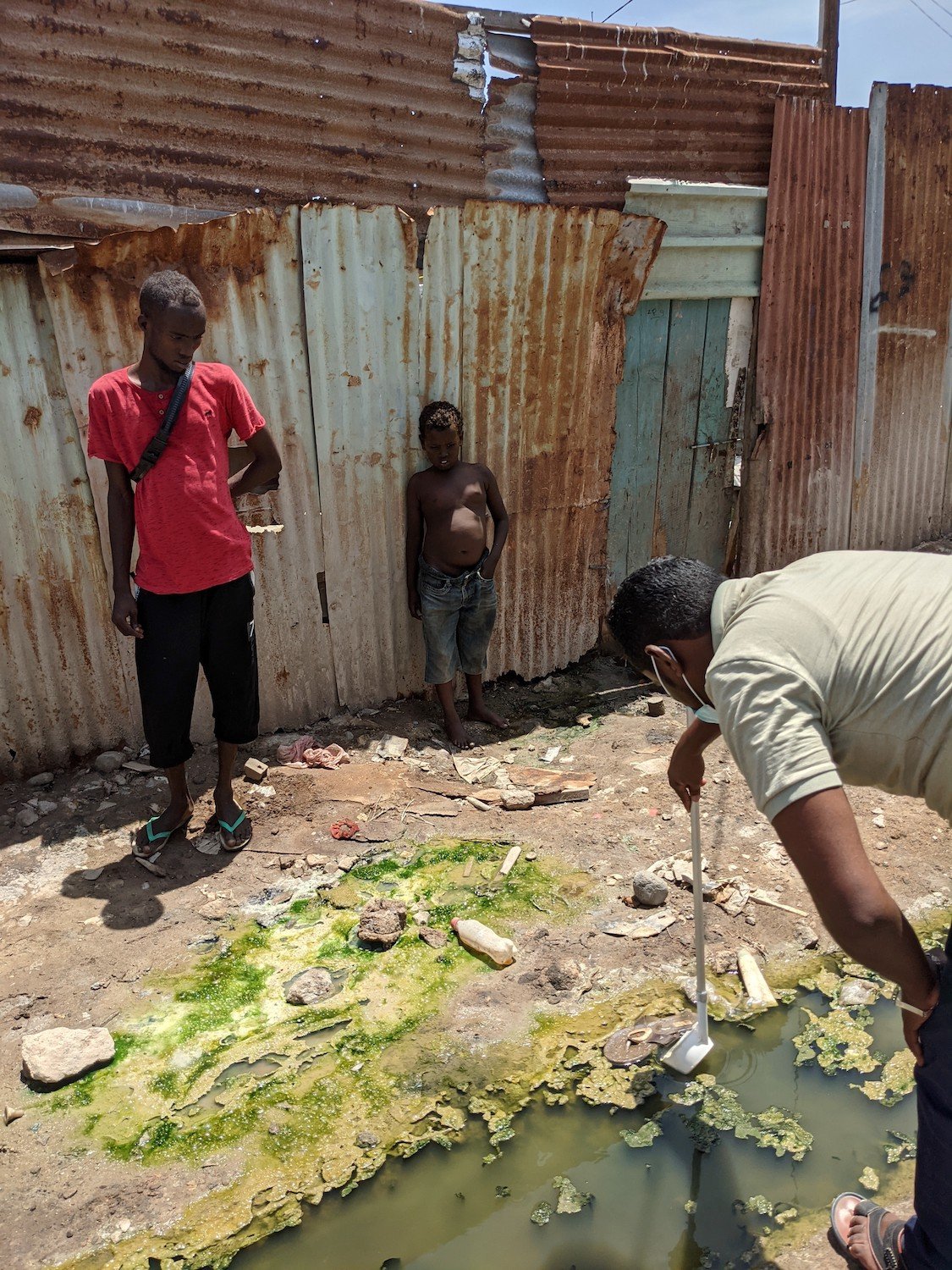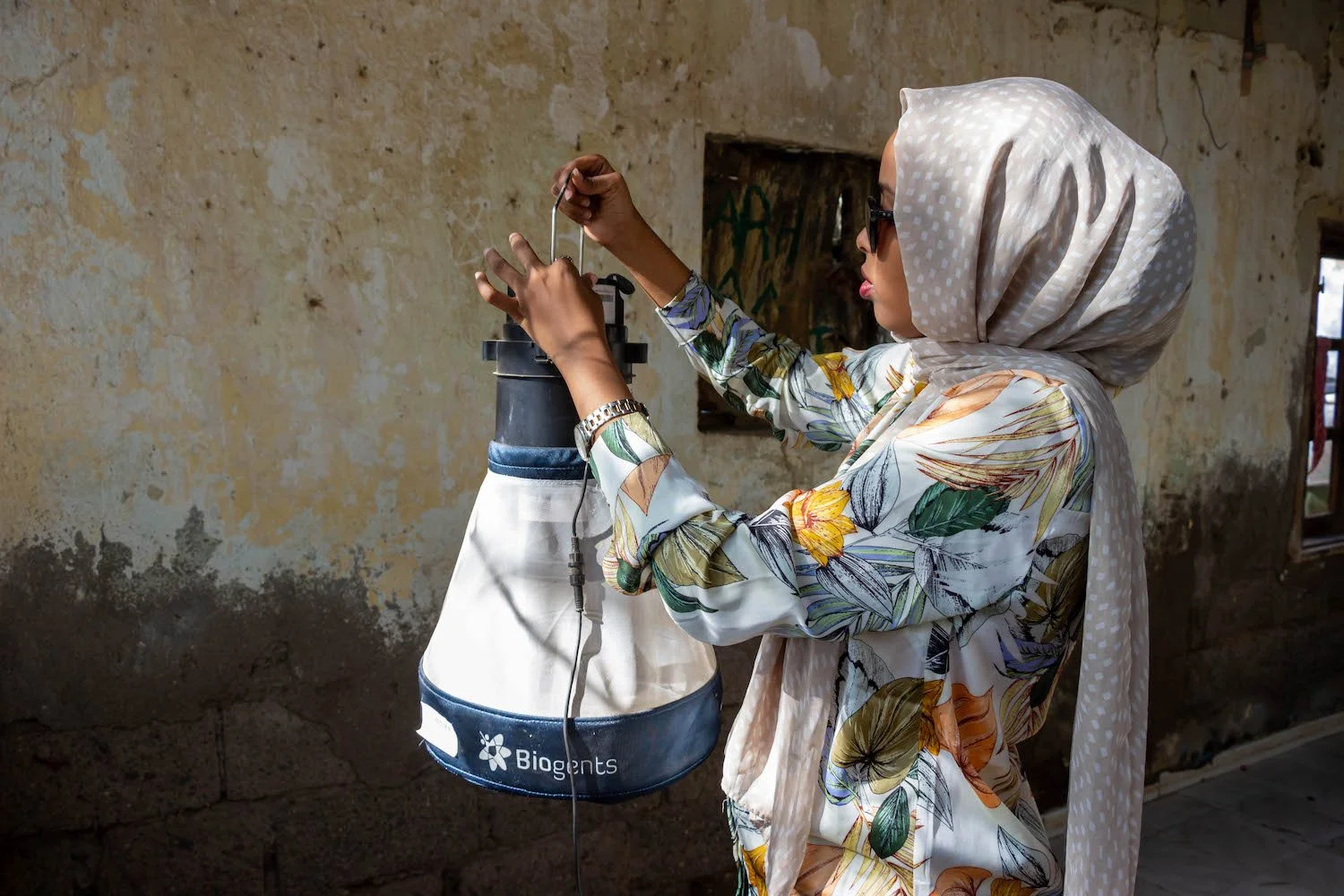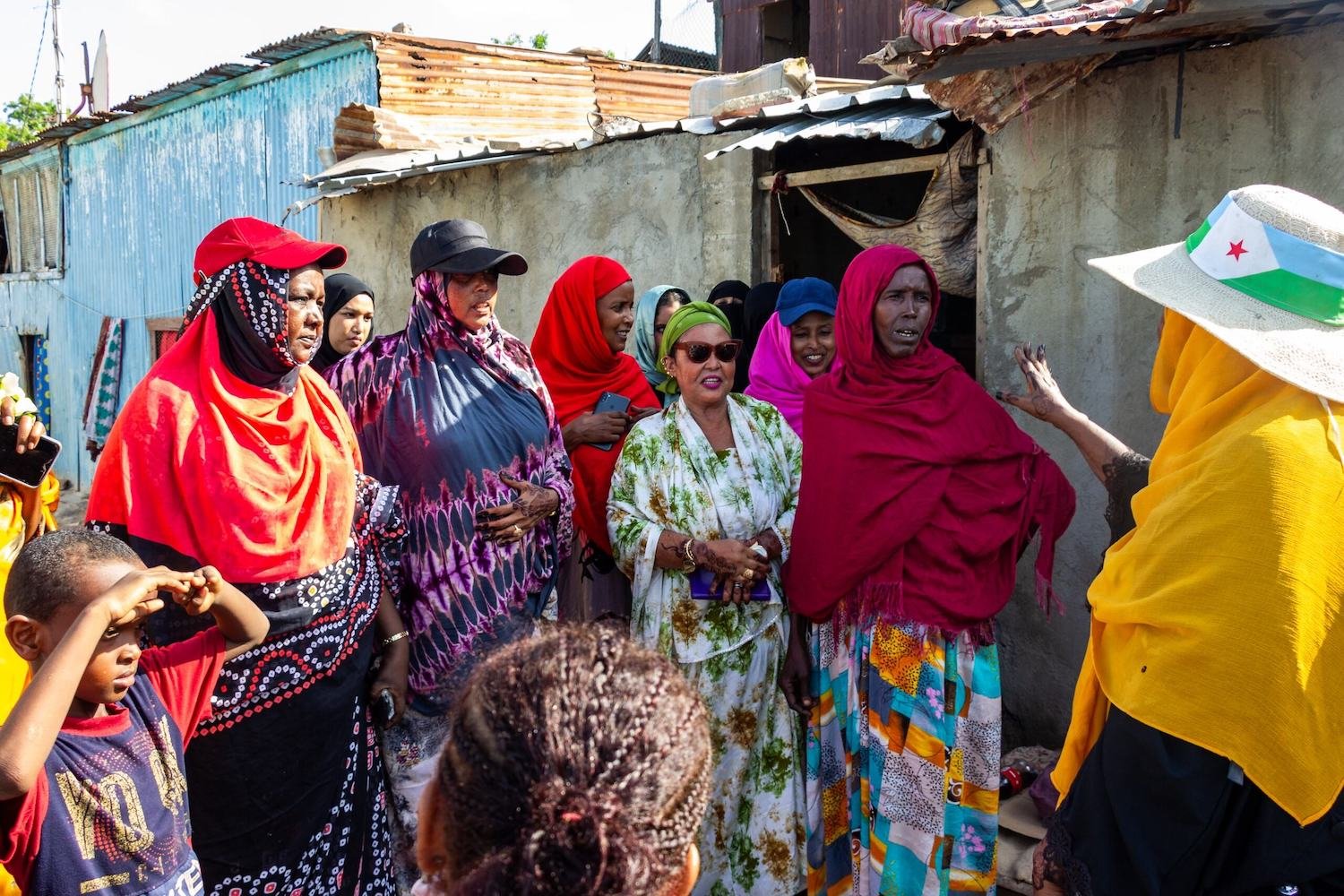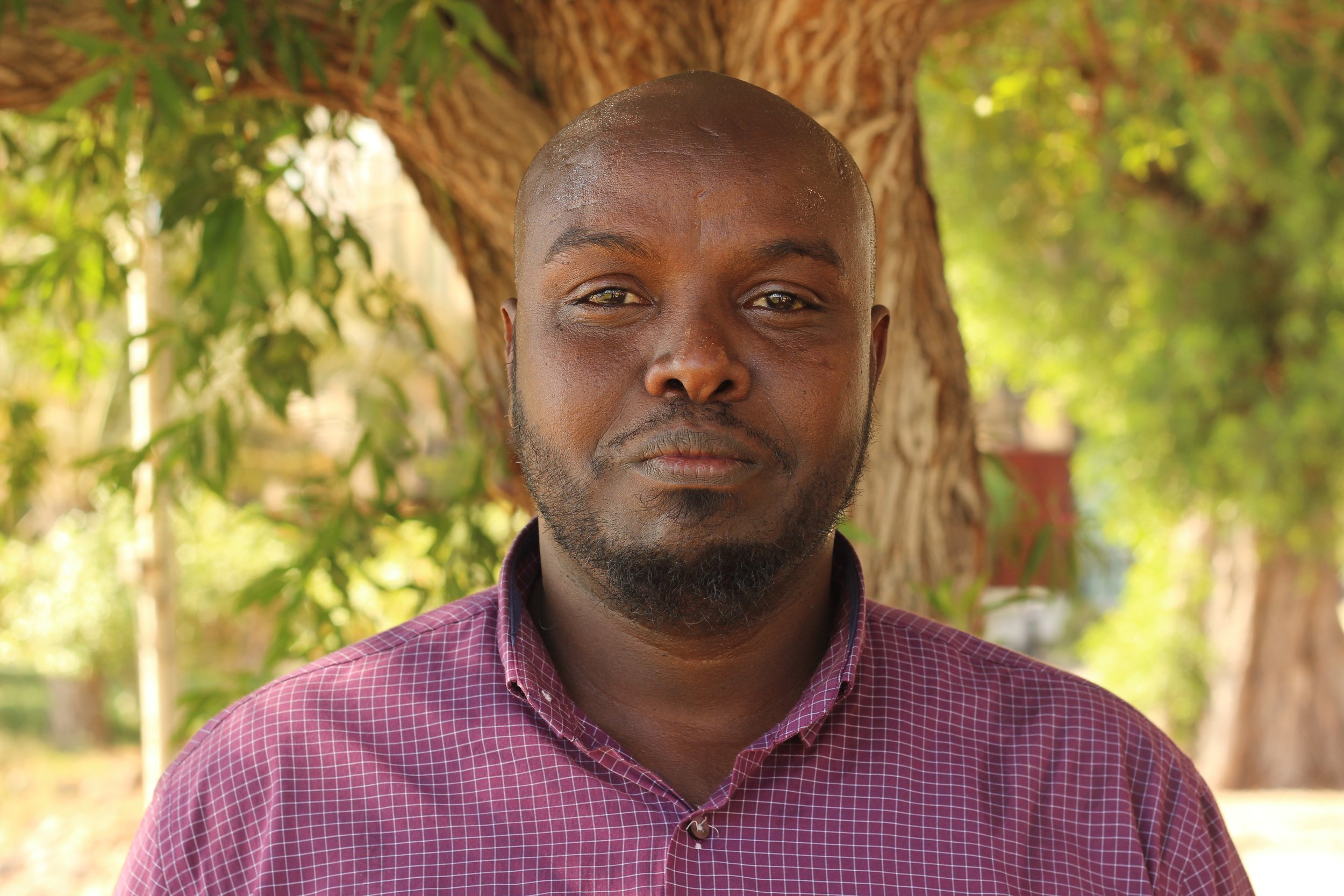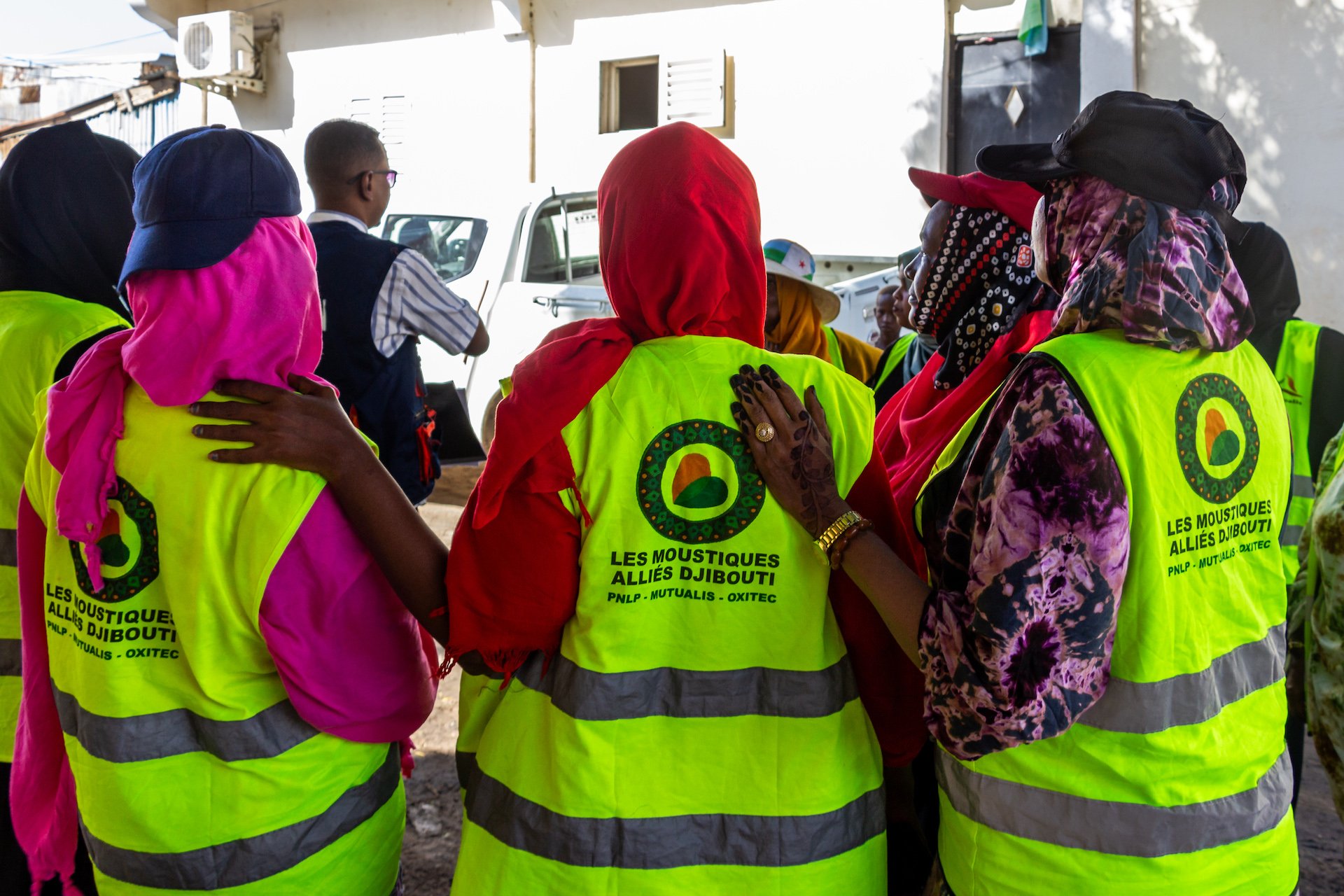
About
In response to a request from the Government of Djibouti, the Djibouti National Malaria Control Programme (PNLP), Association Mutualis and Oxitec announced the launch of a partnership, formed in May 2022 to explore how Oxitec’s Friendly™ solutions can deliver impact in communities threatened by vector-borne diseases.
Djibouti’s National Malaria Control Programme (PNLP) is the national lead in the fight against malaria in Djibouti.
Association Mutualis is a leading not-for-profit organisation serving the public health needs of communities in Djibouti.
Oxitec is the leading developer of biological solutions to control pests that transmit disease, destroy crops and harm livestock. Founded in 2002 at the University of Oxford, Oxitec is led by a passionate team comprised of 15 nationalities and is supported by world-class public, private and non-profit partners.
A Public-Private Partnership for Impact
Since 2021, the project team has been conducting research in partnership with local communities in and around Djibouti City.
Field Monitoring for Anopheles stephensi
Since 2021, the project team has been conducting research in partnership with local communities in and around Djibouti City.
Launched in 2021, we have conducted more than two years of field monitoring to study the presence, abundance and seasonal dynamics of Anopheles stephensi in Djiboutian communities, observing that the malaria vector is present throughout Djibouti City and the surrounding areas.
Mark-Release-Recapture Studies with Wild-Type Mosquitoes
To help determine how long Anopheles stephensi live, how far they travel, and how this may differ in rural and urban environments we have conducted studies in which we release and later recapture wild-type male (non-biting) mosquitoes marked with powder.
Stakeholder Engagement Activities
We have earned strong support across different stakeholder groups in Djibouti, from local communities, to government ministries and malaria control authorities. Community leaders have been trained to undertake door-to-door engagement activities, and community members themselves have assisted with wild-type mosquito releases.
Since January 2023, stakeholder workshops have been held in which Djiboutian public health professionals, government officials, East Africa’s foremost mosquito experts, and multiple malaria not-for-profits have shared perspectives and guidance on design and implementation of the Djibouti Friendly™ Mosquito Program’s activities
Friendly™ Anopheles stephensi Pilots
In January 2024, the Government of Djibouti and Oxitec announced the importation of Friendly™ Anopheles stephensi mosquitoes into dedicated, contained laboratories in Djibouti City.
In May 2024 the first releases of non-biting, Friendly™ (genetically engineered) male Anopheles stephensi were conducted, with the aim of assessing their behaviour. Male Friendly™ mosquitoes were marked with a coloured dye, released and then recaptured using mosquito traps, to measure their dispersal and longevity in Djiboutian conditions. Learn more in the press release here.
In October 2024, the first pilot season of releases of Friendly™ male Anopheles stephensi was launched. Following the pilot study in May, these releases will demonstrate how Friendly™ Anopheles stephensi behave in Djiboutian urban communities, including where they disperse, how long they live, and their ability to mate with local females, paving the way for larger pilots focused on controlling populations of this dangerous mosquito in Djiboutian neighbourhoods.
In the lead-up to these releases, the Djibouti Friendly™ Mosquito Program engaged with local communities to inform them about our work and answer their questions.
The Team
Dr Bouh Abdi Khaireh
Director, Association Mutualis
Samatar Kayad Guelleh
National Malaria Program Coordinator
Col. Dr Abdoulilah A. Abdi
Health Advisor to the Presidency
Zoe Barnes
Global Program Lead, Oxitec
Jackson Nyarko
Djibouti Field Operations Manager, Oxitec
Kelly Matzen
Chief Technology Officer, Oxitec

